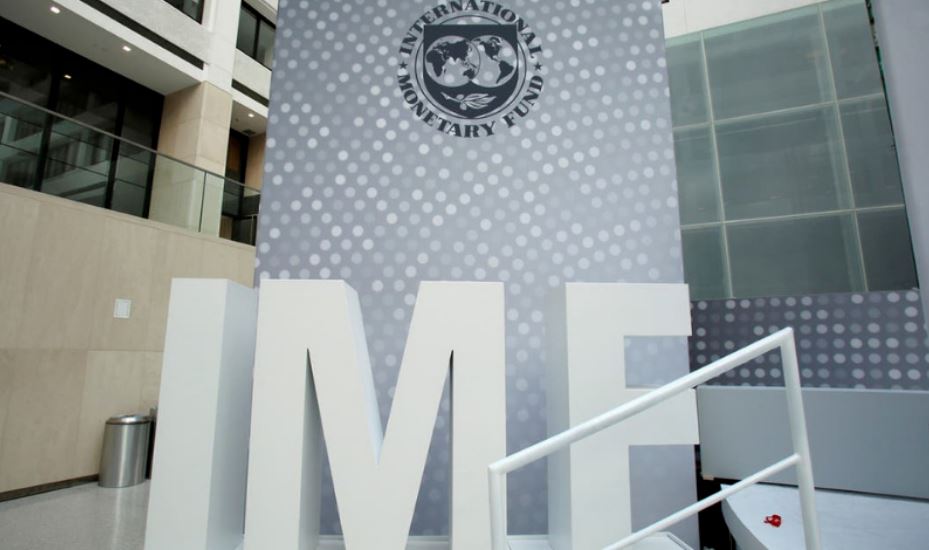Pakistan, IMF reach staff-level agreement on steps for revival of package

ISLAMABAD, NOV 22: The International Monetary Fund (IMF) and Pakistan reached a staff-level agreement on policies and reforms needed to complete the sixth review under the $6 billion Extended Fund Facility (EFF) which has been ‘in recess’ since April, the Fund announced in a statement on Monday.
The agreement is subject to approval by the Fund’s Executive Board, following the implementation of prior actions, notably on fiscal and institutional reforms, the IMF said. The approval of the agreement will make available 750 million in Special Drawing Rights (SDR), equivalent to $,1059m, it added.
This would bring the total disbursements under the programme to $3,027m and help unlock funding from bilateral and multilateral partners, according to the IMF statement.
The SDR is a basket of mixed currencies made available to member countries of the IMF.
In its statement following discussions with Pakistani officials, the IMF acknowledged the country’s progress in implementing the programme “despite a difficult environment”.
“All quantitative performance criteria (PCs) for end-June were met with wide margins, except for that on the primary budget deficit,” the Fund noted, adding that finalisation of the National Socio-economic Registry (NSER) update, adoption of amendments in the National Electric Power Regulatory Authority (Nepra) Act, notification of all pending quarterly power tariff adjustments, and payment of the first tranche of outstanding arrears to independent power producers (IPPs) were “notable” achievements on the structural front.
The Fund also acknowledged Pakistan’s progress in improving its anti-money laundering and combatting the financing of terrorism (AML/CFT) regime. However, additional time was needed to strengthen its effectiveness, according to the statement.
‘Strong economic recovery has gained hold’
“Available data suggests that a strong economic recovery has gained hold, benefiting from the authorities’ multifaceted policy response to the Covid-19 pandemic that has helped contain its human and macroeconomic ramifications,” the IMF said. It noted that the tax revenue collection by the Federal Board of Revenue (FBR) had also been strong.
“At the same time, external pressures have started to emerge: a widening of the current account deficit and depreciation pressures on the exchange rate — mainly reflecting the compound effects of the stronger economic activity, an expansionary macroeconomic policy mix, and higher international commodity prices.”
It observed that the government had gradually started to unwind coronavirus-related stimulus measures in response.
The Fund said the State Bank of Pakistan (SBP) had “taken the right steps” by starting to reverse the accommodative monetary policy stance, strengthening some macroprudential measures to contain consumer credit growth, and providing forward guidance.
The SBP had raised its benchmark interest rate by 150 basis points to 8.75 per cent last week as it grappled with surging inflation and uncertainty.
The government’s policies would help safeguard the positive near-term outlook, the Fund stated, predicting that Pakistan’s economic growth rate would reach or go beyond four per cent in the current fiscal year and 4.5pc in FY23.
It noted that inflation in the country remained high, adding that it “should start to see a declining trend once the pass-through of rupee depreciation is absorbed, and temporary supply-side constraints and demand-side pressures dissipate”.
Regarding the current account deficit, the IMF said it was expected to widen in FY22.
Discussions between the IMF and government officials also focused on policies to help Pakistan achieve sustainable and resilient growth, according to the statement.
“On the fiscal policy front, staying on course on achieving small primary surpluses remains critical to reduce high public debt and fiscal vulnerabilities. Continued efforts to broaden the tax base by removing remaining preferential tax treatments and exemptions will help generate much-needed resources to scale up critical social and development spending.”
Monetary policy
The IMF emphasised that the monetary policy needs to remain focused on curbing inflation, preserving exchange rate flexibility, and strengthening international reserves.
As economic stability deepens and the SBP Amendments Act is passed by parliament, the central bank should “gradually advance the preparatory work to formally adopt an inflation targeting regime in the medium term, underpinned by a forward-looking and interest-rate-focused operational framework”, the Fund said.
It also underscored the importance of reforms in the electricity sector to make it financially viable and tackle its adverse effects on the budget, financial sector and real economy.
“In this regard, steadfast implementation of the Circular Debt Management Plan (CDMP) will help guide the planned management improvements, cost reductions, timely alignment of tariffs with cost recovery levels, and better targeting of subsidies to the most vulnerable,” it noted.
Increased focus was needed to strengthen economic productivity, investment and private sector development, including improving the governance, transparency, and efficiency of the state-owned enterprise (SOE) sector, fostering the business environment, governance, and the control of corruption, boosting competitiveness and exports, promoting financial deepening and inclusion and stepping up to climate change, the IMF said.
Commenting on the development, Finance Ministry spokesperson Muzzammil Aslam said the agreement — which was achieved after 45 days of discussions between the IMF and the government — would “remove a lot of uncertainties”.
Sources had earlier told that discussions between the two sides had concluded on Friday. The announcement of policy rate by the SBP was the last administrative and policy action in the domain of the economic team and stood accomplished. “Everything is agreed to, ready and finished, except legislative part,” the sources said.
Officials explained that the government had partially returned to the policy path given up in April 2021, albeit with certain modifications in line with the changed ground situation. The two sides were originally scheduled to conclude the talks on revival of the IMF programme on October 16 but continued face-to-face dialogue until October 28, followed by virtual discussions until last weekend.
Adviser to the Prime Minister on Finance and Revenue Shaukat Tarin had conceded last week that five prior actions had been agreed, including State Bank of Pakistan (Amendment) Bill, withdrawal of tax exemptions and an increase in energy tariff. The prior action pertaining to tariff adjustment had already been met for now with a recent Rs1.39 per unit increase in power tariff, while the bills to end tax exemptions and give autonomy to the SBP had been prepared. The next tariff increase would take place by February-March 2022 as the power regulator is still in the process of conducting public hearings on tariff adjustments.
Related News

ICCI, ASEAN chamber ink MoU to foster bilateral economic cooperation
DNA Kuala Lumpur: In a significant step towards enhancing bilateral economic cooperation, the Islamabad ChamberRead More

Driving Digital Transformation: CDC Integrates RAAST Aggregator with AKD Securities
KARACHI, AUG 28 (DNA): The Central Depository Company of Pakistan (CDC) has onboarded AKD SecuritiesRead More


Comments are Closed